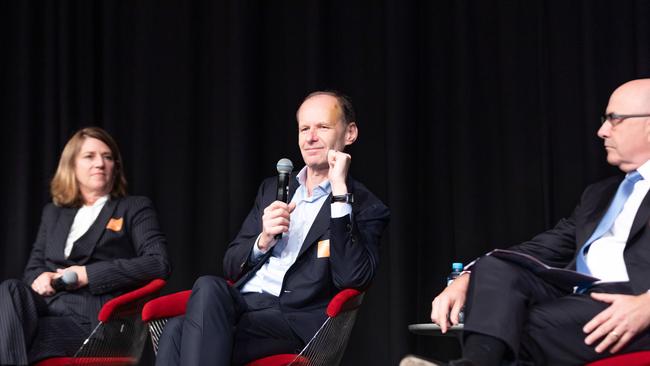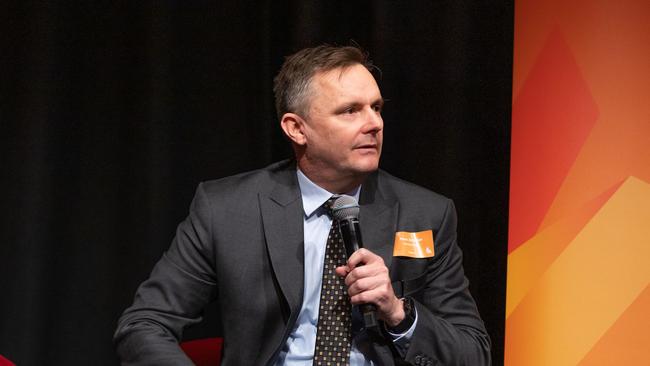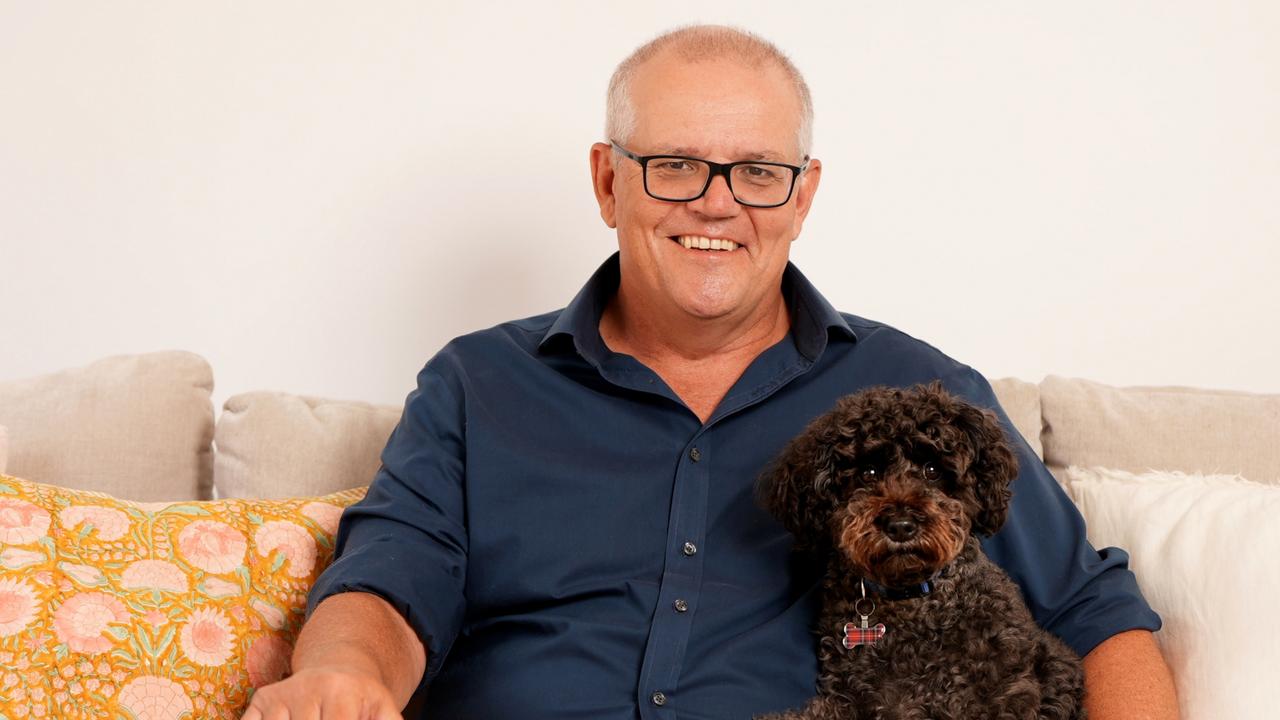ANZ chief executive Shayne Elliott warns of more casualties in war against inflation
ANZ chief Shayne Elliott has told a luncheon that many Australian businesses are ill-equipped to ride out a sustained high interest rate environment.

Australia faces a “rocky” period and sections of the business community are unprepared for a sustained higher interest rate environment, ANZ chief executive Shayne Elliott says.
The big-four bank chief said the current high-inflation environment stemmed from a “crisis of excess opportunity” that coincided with a surge in demand and the only tool to quell it was interest rates.
Despite indications that inflation may have peaked, he believed it would stay high compared with the previous normality and many businesses were unprepared for the new economic realities.
“Australia is a little unique. A lot of our businesses, our customers, have never been through something like this,” Mr Elliott told a Queensland Finance Leaders Lunch in Brisbane.
“It’s been the fastest increase of interest rates globally in history. They have gone from zero to a hundred in a very short time.
“These businesses were set up in a different environment of low interest rates so many of them don’t have any experience on how to deal through this.”
Mr Elliott said the war on inflation would continue to have casualties although the general business sector was not overheated and quality companies without much debt were in a strong position.
“But it’s starting to get rocky and the casualties will be those businesses with too much debt and those with no pricing power,” he said.
“People who have this business model, that’s not set up for this kind of environment, they’re what’s been flushed out at the moment through high interest rates.”

Mr Elliott said although governments ramping up spending on defence, social programs, energy transition and infrastructure – including the 2032 Olympic Games – were “all good things”, they have made the problem worse.
“The Brisbane Olympics will still go ahead in 2032 with interest rates at 5 to 10 per cent,” he said.
“It’s not that we’re not going to build hotels, not going to build stadiums. They will be more expensive.
“The problem with that is that a big chunk of the economy is kind of immune to higher rates.
“All of the pain of higher rates has to be borne by everybody else.
“So there will be this interest rate dilemma and state and federal governments will have to manoeuvre their way around this through policy. Interest rates cannot solve that problem.”
CBA Economics on Thursday said it was a lineball call on whether the RBA would increase interest rates next week, although it said it was more likely there would be another 25 basis points rise.
The RBA board left the cash rate on hold in April at 3.6 per cent, which was the first pause in the tightening cycle since it began lifting the cash rate in May 2022.
CBA said it expected the RBA to retain its forecast for headline and underlying inflation to only return to the top of the target band by mid‑2025.
Heritage and People’s Choice chief executive Peter Lock told the event that he expected a couple more rate rises to come.
“There will be some signs of stress which we are not really seeing yet but it’s starting to come though a little,” he said.
“Banks will work with their customers to see them though. It’s not like it was in the ‘90s and banks have learned their lessons.”

Suncorp chief executive Steve Johnston said a looming issue for the economy was the potential of rising unemployment, which has not surfaced at this stage.
“That’s the variable we will have to look out for over the next 12 to 18 months,” he said.
“It may be possible we may get through the cycle without a massive uptick in unemployment, which will be fantastic for the nation.”
Mr Johnston said Suncorp, which has one of Australia’s largest general insurance businesses, was preparing itself for the impact of the El Nino weather pattern which will bring hot weather and drought.
“We are staring into one of the biggest generational challenges I think of anyone’s lifetime ... the impact of climate change, frequency and severity of weather events,” he said.
“We’ve had three La Nina weather cycles in a row and that’s very unusual. As a company we have spent billions of dollars rebuilding communities up and down the east coast of Australia.
“On the back of three years of rain now they’re talking about El Nino; not only El Nino but a Super El Nino whatever that means. We have six (months) to prepare ourselves for another summer where we will be challenged again.”
Mr Johnston warned that insurers would have to tighten up their guidelines.
He said it would be more difficult to provide insurance for those areas where people were able to build houses where they should never have been allowed.
“That’s a huge challenge for those communities,” he said.






